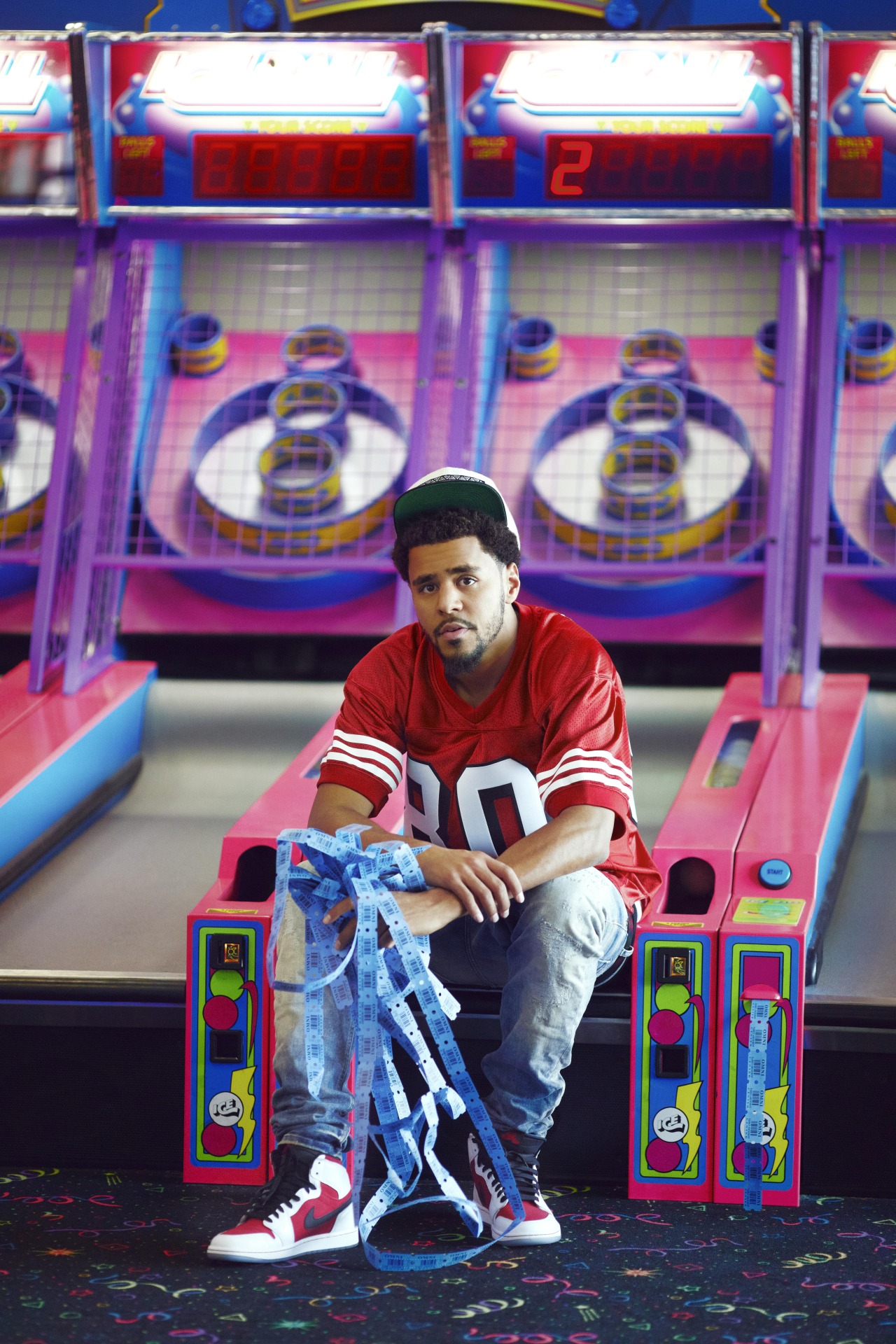 In June of last year, North Carolina rapper J. Cole released his humblebrag on wax, Born Sinner, on the same day Kanye West’s Yeezus came out. Behind a decent lead single and a sound promotional effort, Born Sinner reached the top spot of the Billboard 500. It was a mixed success for Cole because he succeeded in making last summer his moment, but he spent that moment addressing haters on the internet, trying to qualify his use of the word “faggot” and kowtowing to a rap icon.
In June of last year, North Carolina rapper J. Cole released his humblebrag on wax, Born Sinner, on the same day Kanye West’s Yeezus came out. Behind a decent lead single and a sound promotional effort, Born Sinner reached the top spot of the Billboard 500. It was a mixed success for Cole because he succeeded in making last summer his moment, but he spent that moment addressing haters on the internet, trying to qualify his use of the word “faggot” and kowtowing to a rap icon.
Since Born Sinner, there was his compilation mixtape with his Dreamville cronies that lived up to the “Audio Nyquil” billing his detractors give him, the appearance he made in Ferguson, Mo. in August and the Michael Brown tribute song he released around that time. 2014 Forest Hills Drive, J. Cole’s third studio album is better than its predecessor by a hair, but Cole’s lyrics are still clumsy to the point that they stop endearing and start embarrassing.

 Sure, J. Cole’s ode to becoming a man, “Wet Dreamz,” is particularly awkward, but he’s also not at the point where he can pull off yelling, “This is the part that the thugs skip” without sounding like Fergie’s going to spontaneously appear in the studio out of thin air and break into the third verse of “Fergalicious”. Elsewhere on “Fire Squad,,” Cole decides to start calling out white artists for becoming popular off of black music and almost immediately backs off of his statement, admitting it was a joke a with little bit of truth to it, rather than sticking to a valid point, Eminem name drop notwithstanding. It’s the equivalent of starting each paragraph of a persuasive essay with the phrase, “I believe.” It arouses suspicion that whenever J. Cole bares his fangs he just wants more people to like him for it.
Sure, J. Cole’s ode to becoming a man, “Wet Dreamz,” is particularly awkward, but he’s also not at the point where he can pull off yelling, “This is the part that the thugs skip” without sounding like Fergie’s going to spontaneously appear in the studio out of thin air and break into the third verse of “Fergalicious”. Elsewhere on “Fire Squad,,” Cole decides to start calling out white artists for becoming popular off of black music and almost immediately backs off of his statement, admitting it was a joke a with little bit of truth to it, rather than sticking to a valid point, Eminem name drop notwithstanding. It’s the equivalent of starting each paragraph of a persuasive essay with the phrase, “I believe.” It arouses suspicion that whenever J. Cole bares his fangs he just wants more people to like him for it.
It’s a shame J. Cole frequently slips up on the front end of 2014 Forest Hills Drive, because he’s often charming on the rest of this album until he goes full “Last Call” on the 14 minute outro “Note To Self” (this move was executed better by Beatking on his June mixtape Gangster Stripper Music 2). These tracks live up to J. Cole’s mission statement: pensive, crass, soulful, silly, sentimental, civic, and unpretentious. The hooks are great, the production he does lay down is above average and he’s fun to listen to. He even manages to take the attention away from more his more problematic lyrics on “No Role Modelz” and “Apparently” with strong flows, production and his improved singing chops. All of this is done in a way that exhibits a rapper comfortable in his skin and not the wannabe Kendrick/Drake hybrid that shows up on the first eight tracks.
2014 Forest Hills Drive is still a failure, however, because the same false prophet who appeared on Born Sinner is back with the same strengths and weaknesses. For a rapper whose primary sales pitch is lyricism, J. Cole has actually doubled down on terrible lyrics, which are then compensated for by his dexterity. In other words, he’s as much a parody of has been 90s rappers as he is of his contemporaries. Here within lies the problem with J. Cole: he tries to be everything to everyone. On 2014 Forest Hills Drive, Cole’s the romantic crooner, the street rapper, the backpacker, the college kid, concerned citizen, and the sentimental boy. Like a restaurant that sells too many specialty foods, however, there’s nothing on the menu worth paying $10 to consume.
Rating: 2.5/5


